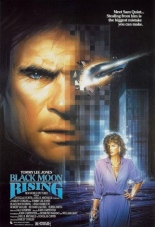
 Freelance thief Tommy Lee Jones is hired to steal some accounting reports from a corporation. Lucky for him, they’re marked “ACCOUNTING REPORTS” in big, block letters. Unlucky for him, he triggers the alarm during this assignment and is forced to hide the cassette in the back of the Black Moon — an experimental super-car that runs on water and hits 325 mph — during a chance meeting at a gas station.
Freelance thief Tommy Lee Jones is hired to steal some accounting reports from a corporation. Lucky for him, they’re marked “ACCOUNTING REPORTS” in big, block letters. Unlucky for him, he triggers the alarm during this assignment and is forced to hide the cassette in the back of the Black Moon — an experimental super-car that runs on water and hits 325 mph — during a chance meeting at a gas station.
He tracks the Black Moon to a hotel, where, unlucky for him, professional car thief Linda Hamilton steals it for boss Robert Vaughn’s chop shop, hidden in the basement of a twin high rise. Lucky for him, Hamilton’s having some issues with her boss, so she agrees to help him steal it. Unlucky for him, she also beds down with him — seriously, she kind of looks like a dude.
 The fun of Black Moon Rising is all contained in the final third, with the nighttime break-in of the tower, the theft and the escape, all with cranky-puss Tommy Lee climbing through air shafts and doing donuts.
The fun of Black Moon Rising is all contained in the final third, with the nighttime break-in of the tower, the theft and the escape, all with cranky-puss Tommy Lee climbing through air shafts and doing donuts.
Any movie set in a high-rise at night automatically carries a cachet of cool (unless it stars Paul Reiser), but imagine how much cooler this would have been if screenwriter John Carpenter had directed it as well. This was an early Carpenter script dusted off after he hit it big, so his involvement is limited. But it’s a fairly well-crafted B-picture that knows every so often, you just gotta focus on the car. —Rod Lott

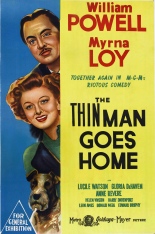
 Five movies into any series and the novelty will start wearing off. Unfortunately, that’s as true of
Five movies into any series and the novelty will start wearing off. Unfortunately, that’s as true of 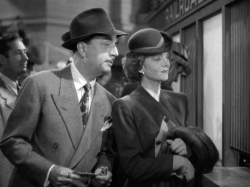 Nick’s best gags have always been his search for the next drink and his drunken endurance of insufferable people. Here, he soberly faces likable people and tries to get them to like him. It’s a sad position for the once great detective to be in.
Nick’s best gags have always been his search for the next drink and his drunken endurance of insufferable people. Here, he soberly faces likable people and tries to get them to like him. It’s a sad position for the once great detective to be in.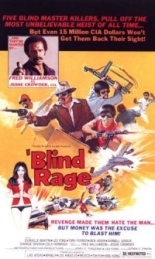
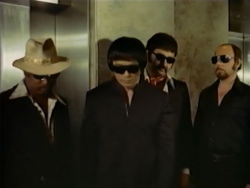 And what would this movie be without a little kung fu fighting when it comes time to doing the crime? Probably just as incredibly average, running a few less minutes.
And what would this movie be without a little kung fu fighting when it comes time to doing the crime? Probably just as incredibly average, running a few less minutes. 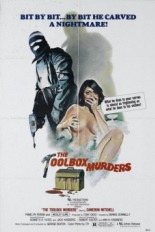
 To be fair, the slasher portions of this infamous slasher film make up only a small part of the picture. It should be called A Criminal Investigation Into the Toolbox Murders. Regardless,
To be fair, the slasher portions of this infamous slasher film make up only a small part of the picture. It should be called A Criminal Investigation Into the Toolbox Murders. Regardless,  After the ski-masked killer’s rounds of chiseling and hammering tenants, one right after the other, The Toolbox Murders switches into a police procedural, à la Law & Order: Hardware Victims Unit, as the cops investigate. Unlike Tobe Hooper’s superior
After the ski-masked killer’s rounds of chiseling and hammering tenants, one right after the other, The Toolbox Murders switches into a police procedural, à la Law & Order: Hardware Victims Unit, as the cops investigate. Unlike Tobe Hooper’s superior 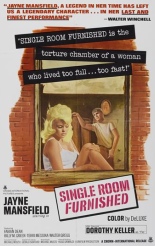
 Gossip columnist Walter Winchell appears in the prologue of
Gossip columnist Walter Winchell appears in the prologue of  In the first, Frankie (Martin Horsey) and Johnnie recall the night they met, and she mopes over unmade egg salad sandwiches. He talks like Dustin Hoffman after getting kicked in the head by a horse. Twice. In the next tale, Mae finds herself pregnant and seeks the solace in Charley (Fabian Dean), her lumpy schmo of a neighbor.
In the first, Frankie (Martin Horsey) and Johnnie recall the night they met, and she mopes over unmade egg salad sandwiches. He talks like Dustin Hoffman after getting kicked in the head by a horse. Twice. In the next tale, Mae finds herself pregnant and seeks the solace in Charley (Fabian Dean), her lumpy schmo of a neighbor.